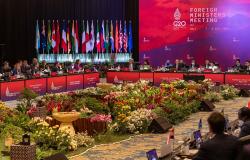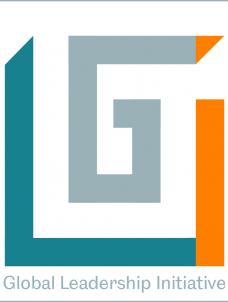Socially Distant Global Governance

The 17th Group of 20 (G20) Heads of State and Government Summit is currently taking place. Tom Chodor, reporting from Bali, argues that with little prospect for major breakthroughs on the global economy, the G20 is instead becoming a space for bilateral meetings.
International Media Centre – G20 Bali, Indonesia The G20 Leaders’ Summit kicked off today on the Indonesian island of Bali, a top tourism destination in the Asia-Pacific, known largely for its beaches and temples. Naturally, this is the place for world leaders would to meet and talk through the world’s problems, of which there are legion.
There are the effects of the pandemic, which has crippled supply chains, slowed global trade and threatened the finances of many developing countries. There are the economic effects of Russia’s invasion of Ukraine, which has sent world energy prices soaring, and driven inflation to levels only those with very long memories can recall. Having been caught flat footed, central banks are now in an arms race to raise interest rates, not only threatening to crash the global economy, but creating further financial volatility, as investors suddenly rush to the US bond market. So, for the self-styled world’s premier forum for international economic cooperation, there’s plenty to deal with.
Yet, the summit’s theme, constantly repeated by the host nation Indonesia, of “recover together, recover stronger,” hints not only at the precarious nature of the global economy, but also at the divisions between world leaders on how to address it. The divisions are now well known, not only over the Russia-Ukraine war, but also between the US and China, who seem to be heading for a new Cold War, while developing countries desperately seek to avoid getting trapped in the middle. In such a context, there is little consensus on how to govern the global economy. Don’t be fooled by the usual talk that will appear in the communique about inclusive growth or just energy transitions. These phrases continue being rolled out each year yet they don’t seem to amount to more than just slogans.
Perhaps this is partly why the summit proceedings feel so distant from the community around them. The summit is being held in the exclusive tourism complex of Nusa Dua, home to 19 luxurious resorts, a shopping centre, museum and of course the obligatory golf course. The complex feels a world away from the rest of the island, even before it was closed off to local traffic, though somehow Bali’s legendary traffic jams remain. As is often the case with these things, the world leaders seem isolated from the ordinary people they’re ostensibly seeking to help.
 They also seem to be far away from those who usually follow them in the media. The location where the leaders are meeting is away from the international media centre, and the only contact seems to be an occasional live stream beamed into the centre, with no sound, making it hard to figure out what, if anything, is being discussed. These meetings have always largely occurred behind closed doors, but at least the media would be let in to hear the chair’s opening and closing remarks to get a sense of the discussions. Now, this has been curtailed too, ostensibly because of covid-19, but one gets the sense the leaders have taken a liking to meeting at a distance. At least the media are being kept entertained with free swag and foot massages.
They also seem to be far away from those who usually follow them in the media. The location where the leaders are meeting is away from the international media centre, and the only contact seems to be an occasional live stream beamed into the centre, with no sound, making it hard to figure out what, if anything, is being discussed. These meetings have always largely occurred behind closed doors, but at least the media would be let in to hear the chair’s opening and closing remarks to get a sense of the discussions. Now, this has been curtailed too, ostensibly because of covid-19, but one gets the sense the leaders have taken a liking to meeting at a distance. At least the media are being kept entertained with free swag and foot massages.
Given all of this, what are these summits actually good for? With little prospect for a major breakthrough on the actual problems plaguing the global economy, it seems the G20 is instead becoming a space for bilateral meetings between world leaders where they discuss issues that concern their countries.
We’ve already had a bilateral meeting between Joe Biden and Xi Jinping, their first in-person sit down as leaders of their respective countries. Based on their respective readouts, it seems it consisted largely of a restatement of each side’s grievances over Taiwan, trade, human rights and technology. But there were also signs that the two sides are willing to take the tensions down a notch or two, and seek to restart some sort of cooperation over areas where they may agree, like climate change. While the new Cold War between the two sides persists, at least they’re talking.
Similarly, while not on the same scale, the Australian Prime Minister Anthony Albanese and Xi have also sat down together at the summit, the first such meeting between the leaders of the two countries since 2017. Their relationship has been in the diplomatic freezer following spats over foreign interference and the origins of the covid-19 pandemic. The meeting is unlikely to resolve the litany of disagreements between the two sides, but again at least it begins a dialogue that’s been silent for over six years.
Likewise, with Russia effectively absent from the meeting – with Putin staying at home and Foreign Minister Sergei Lavrov visiting hospital for an unspecified illness and then leaving a day early – the leaders have allegedly agreed on a condemnation of the effects of the Russia-Ukraine war and Russia’s threats to nuclear escalation, while calling for an end to the conflict.
In short, it seems that the best that the G20 can do is to offer a platform for the leaders of the world’s 20 largest economies to meet and talk, and try to manage their disagreements so that they don’t escalated into full blown stand-offs. It’s a far cry from the initial promises of a ‘new Bretton Woods’ following the G20’s elevation to the top echelon of international diplomacy. But, at a time of ‘polycrisis’ it may be the best we can hope for.
Tom Chodor is a Lecturer in Politics and International Relations in the School of Social Sciences. Prior to joining Monash, he was the UQ Postdoctoral Research Fellow in the School of Political Science and International Studies at the University of Queensland, and a Lecturer in the School of Sociology at the Australian National University. He holds a Bachelor of Arts from the University of Auckland, and a Bachelor of Arts (Honours) and PhD from the Australian National University.
Image: Wikicommons

